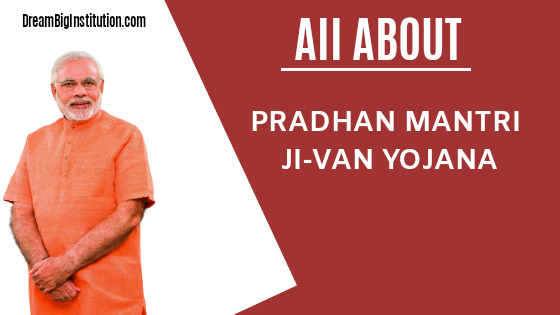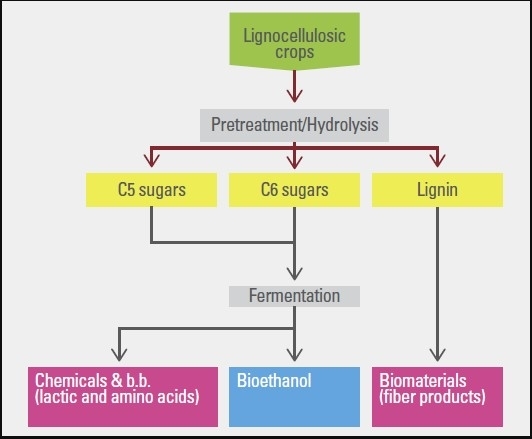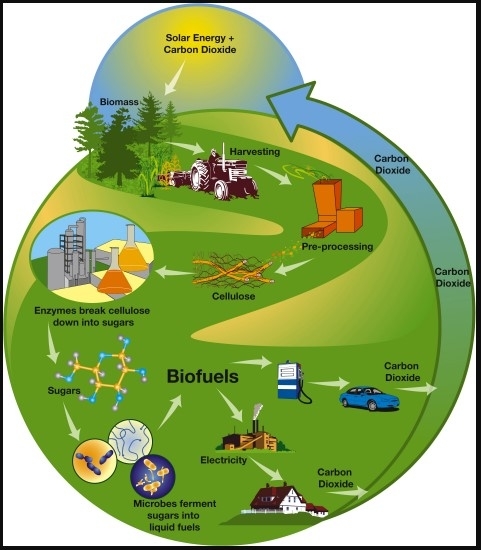Table of Contents
All About Pradhan Mantri JI- VAN Yojana
On 28th February 2019 the Cabinet Committee on Economic Affairs, chaired by PM Narendra Modi has ratified the new scheme which is structured on Biofuel based projects. The scheme is known as “Pradhan Mantri JI-VAN (Jaiv Indhan- Vatavaran Anukool Fasal Awashesh Nivaran) Yojana”.
It is one of the most innovative steps taken by the central government for the conservation of the ecosystem. The scheme aims to provide financial support for integrated Bioethanol Projects using Lignocellulosic biomass and other renewable feedstock will be further processed and utilized as fuel.
Objective – To create 2G Ethanol capacity in the country and attract investments in this new sector.
What is Lignocellulosic Process?
Lignocellulosic Biomass is the process refers to plant biomass that is composed of cellulose, hemicellulose, and lignin. Biomass is increasingly recognized as a valuable commodity since it is an alternative to petroleum for the production of biofuels and chemicals.
Recycle Process of Biofuel in the environment
Fund Allocation and Disbursement:
- The Scheme will be supported with total funding of Rs. 1969.59 crore for the period from 2018 – 2019 to 2023 – 2024.
The overall fund is further divided into three groups-
- Rs. 1800 crores have been allocated for 12 commercial projects.
- Rs. 150 crores have been allocated for supporting 10 demonstration projects.
- Rs. 9.50 crores will be provided to the Centre of High Technology as administrative charges.
The Central Government framed the funding in the form of VGF (Viability Gap Funding). The VGF is provided in two different phases they are-
- Phase-I (2018 -19 to 2022 -23): In this Phase out of 12, first 6 commercial projects and out of 10, first 5 demonstration projects will be supported.
- Phase-II (2020-21 to 2023-24): In this Phase remaining 6 commercial projects and 5 demonstration projects will be supported.
Central Government project the plan in the following manner
- The Scheme focuses to incentivize 2G Ethanol sector and support this nascent industry by creating a suitable ecosystem for setting up commercial projects and increasing Research Development in this area.
Benefits of the Scheme
- Meeting Government of India vision of reducing import dependence by way of substituting fossil fuels with Biofuels
- Achieving the GHG (Green House gas) emissions reduction targets through progressive blending substitution of fossil fuels.
- Addressing environment concerns caused due to the burning of biomass/crop-residues and improve the health of citizens.
- Improving farmer income by providing them remunerative income for their otherwise waste agriculture residues.
- Creating rural and urban employment opportunities in 2G Ethanol projects and Biomass supply chain.
- Contributing to Swachch Bharat Mission by Supporting the aggregation of non-food biofuel feedstocks such as waste biomass and urban waste.
- Indigenizing of 2nd Generation Biomass to Ethanol technologies.
Background
The government of India launched Ethanol Blended Petrol (EBP) programme in 2003 for undertaking blending of ethanol in Petrol to address environmental concerns due to fossil fuel burning, provide remuneration to farmers, subsidize crude imports and achieve forex savings.
Presently, EBP is being run in 21 States and 4 UTs of the country. Under the EBP programme, OMCs are to blend up to 10% of ethanol in Petrol. The present policy allows procurement of ethanol produced from molasses and non-food feedstock like celluloses and lignocelluloses material including petrochemical route.














